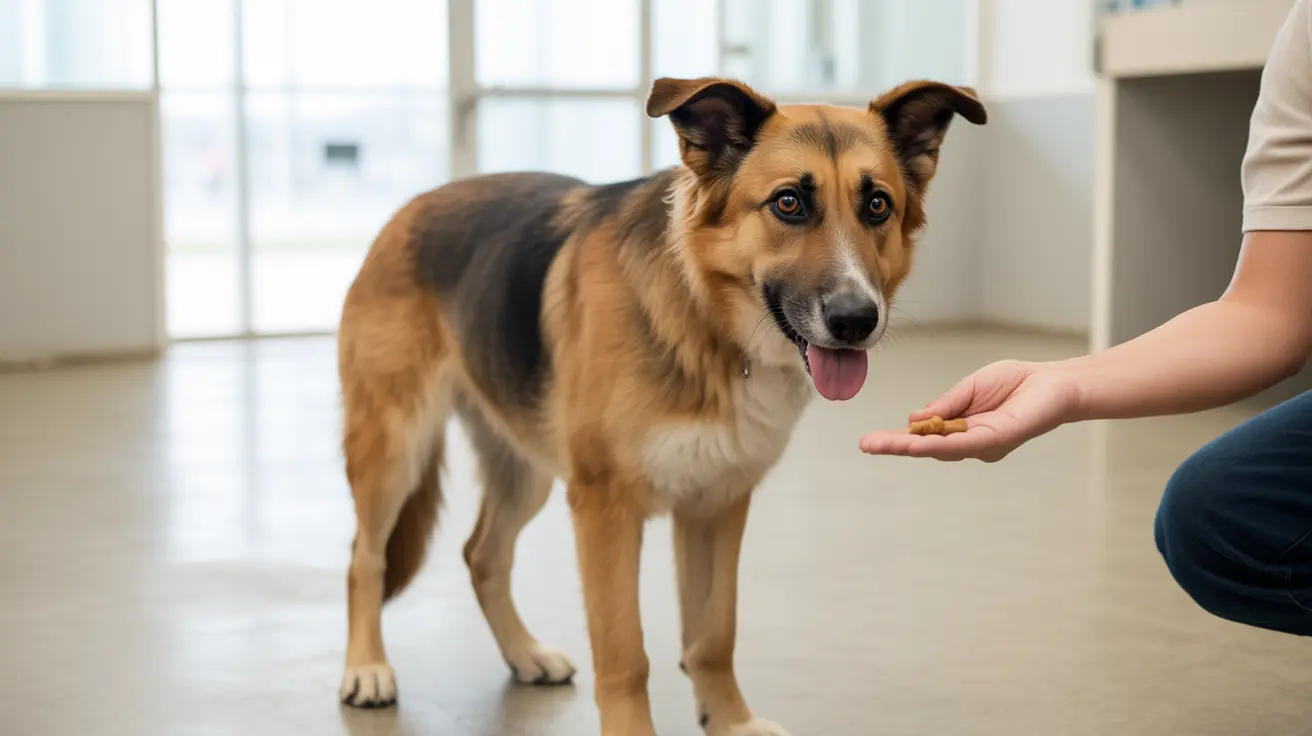If you've ever been startled awake by the sound of your dog vomiting at night, you're not alone. Nighttime vomiting in dogs is a common concern that can stem from various causes, ranging from simple dietary issues to more serious health conditions. Understanding why dogs throw up at night and knowing how to address this issue is crucial for every pet owner.
In this comprehensive guide, we'll explore the reasons behind nighttime vomiting in dogs, identify warning signs that require veterinary attention, and discuss effective prevention strategies to help your furry friend maintain better digestive health.
Common Causes of Nighttime Vomiting in Dogs
Bilious Vomiting Syndrome (BVS)
The most common reason dogs throw up at night or early morning is Bilious Vomiting Syndrome. This condition occurs when bile from the small intestine backs up into the empty stomach, causing irritation and subsequent vomiting. Dogs with BVS typically produce yellow or foamy vomit due to the presence of bile.
Empty Stomach Issues
When dogs go too long without eating, especially during the night, their stomachs can become overly acidic. This extended fasting period often leads to nausea and vomiting, particularly in dogs with sensitive digestive systems.
Medical Conditions That Can Cause Night-Time Vomiting
While BVS is common, other health issues may trigger nighttime vomiting:
- Gastrointestinal infections
- Pancreatitis
- Kidney or liver disease
- Inflammatory bowel disease
- Gastric motility problems
- Foreign body obstruction
- Food allergies or intolerances
Prevention and Treatment Strategies
Dietary Management
The most effective way to prevent nighttime vomiting is through proper feeding management:
- Feed a small meal before bedtime
- Maintain consistent meal times
- Consider feeding a higher-protein evening meal
- Avoid sudden diet changes
Medical Interventions
If dietary changes don't resolve the issue, your veterinarian might recommend:
- Stomach-protecting medications
- Anti-nausea drugs
- Prokinetic medications to improve digestive motility
- Treatment for underlying conditions if present
Warning Signs: When to See a Vet
Seek immediate veterinary care if your dog exhibits:
- Multiple vomiting episodes in one night
- Blood in vomit
- Lethargy or weakness
- Abdominal pain or bloating
- Fever
- Dehydration signs
- Loss of appetite
Frequently Asked Questions
Why does my dog throw up yellow bile at night or early in the morning?
Dogs typically throw up yellow bile at night or early morning due to Bilious Vomiting Syndrome, which occurs when bile irritates an empty stomach after extended periods without food. This is most common in dogs who go long periods between meals.
How can I prevent my dog from vomiting at night due to bilious vomiting syndrome?
The most effective prevention method is feeding a small meal or snack before bedtime. Additionally, maintaining consistent meal times and avoiding long fasting periods can help prevent nighttime vomiting.
When should I worry and take my dog to the vet if it's vomiting at night?
Seek veterinary care if your dog vomits multiple times in one night, shows signs of lethargy, has blood in the vomit, experiences severe abdominal pain, or exhibits other concerning symptoms like dehydration or loss of appetite.
What are the common causes of nighttime vomiting in dogs besides bilious vomiting syndrome?
Other causes include gastrointestinal infections, food allergies, foreign body ingestion, pancreatitis, kidney or liver disease, and inflammatory bowel disease. Stress and certain medications can also trigger nighttime vomiting.
How should I manage feeding and diet if my dog frequently vomits at night?
Establish a consistent feeding schedule with smaller, more frequent meals throughout the day. Include a small, protein-rich snack before bedtime, and avoid sudden diet changes. Work with your veterinarian to determine the best feeding schedule and diet type for your dog.






